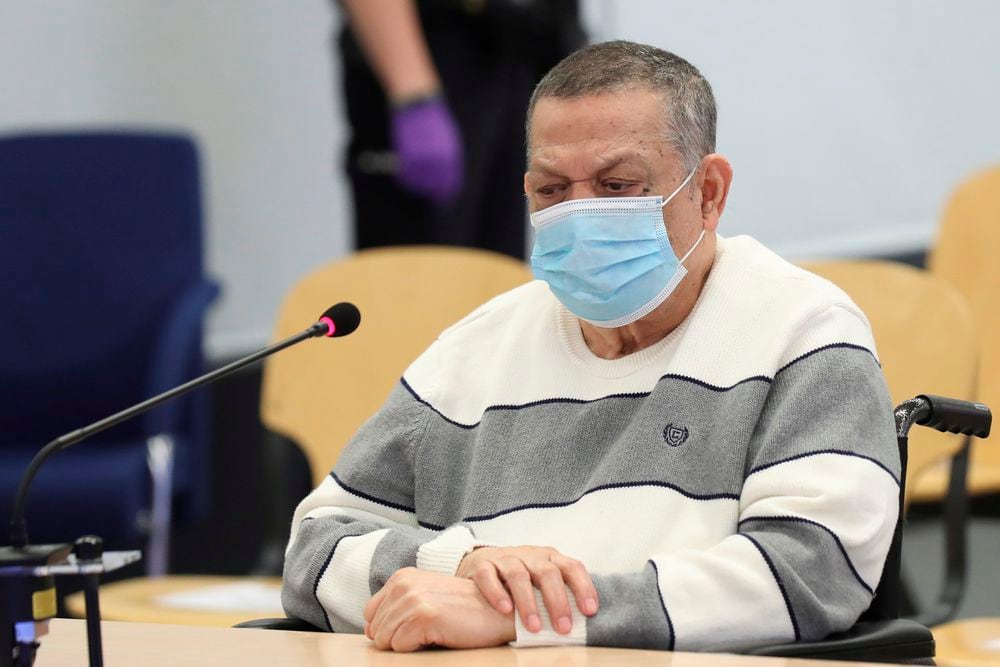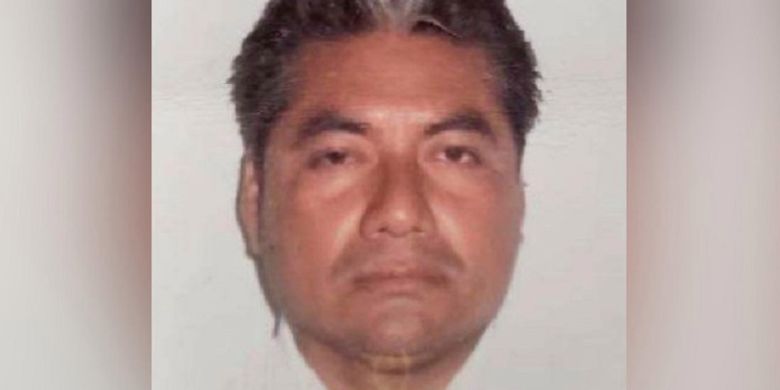Relatives and companions of the Jesuits murdered in El Salvador in 1989 had been waiting for three decades to hear this word: “Condemned.” And this Friday, almost 31 years after the massacre perpetrated at the Central American University (UCA), they have finally heard it at the National Court, where the judges have sentenced former Colonel Inocente Orlando Montano, also a former Deputy Minister of Security of the Central American country, to who the Prosecutor’s Office accused of participating in the design and execution of the violent plan to kill the victims. The penalty adds up to 133 years, 4 months and 5 days in prison as he is considered responsible as the author of five crimes of murder of a “terrorist nature”. He was the only defendant at this oral hearing.
Faced with great international expectation, the judges of the National Court have read their ruling after one in the afternoon: 26 years, 8 months and one day in jail for each of the deaths of the five Spanish priests. His words put a full stop in a process in which, for the first time, one of the alleged intellectual authors of the crime committed in the early morning of November 16, 1989, when a group of soldiers was put on the bench of the Atlacatl battalion broke into the UCA and shot dead six Jesuit priests: the Spanish Ignacio Ellacuría, Ignacio Martín-Baró, Segundo Montes, Amando López, Juan Ramón Moreno, and the Salvadoran Joaquín López. That night they also killed the wife and daughter of the university’s security officer, Elba and Celina Ramos.
The Prosecutor’s Office and the Association for Human Rights of Spain highlighted that the former colonel, then vice minister, played a key role in the crime. According to his indictments, he was part of the group of authorities that decided and ordered the military to kill. Montano was a recognized member of La Tandona, a group of ultra-rightist officers who held key positions in the Army, and stood out for his attacks against Ellacuría, rector of the UCA, and his colleagues, whom he considered accomplices of terrorists for betting on the way of dialogue to end the civil war.
In fact, during his testimony at the trial, although he assured at first that he “had no ill will towards the Jesuits,” he ended up charging them. He considered them the promoters of a coup in 1979 against the ultra-conservative military government – “Ellacuría convinced the people that a change was necessary and they dismissed the general from the government. [Carlos Humberto] Romero “-; and accused them of meeting and supporting the” terrorists “of the revolutionary guerrilla of the Farabundo Martí National Liberation Front (FMLN). In addition, he denied having participated in the execution of the crime. Despite being pointed out by the Prosecutor’s Office , the Truth Commission of El Salvador and declassified documents from the United States – from the Department of State, the CIA and the Department of Defense – Moreover, just a few days before the multiple murder, he used the official state radio station to launch death threats against priests.
Also, one of the material perpetrators of the crime, former Lieutenant Rene Yushsy Mendoza, pointed him out at the National Court as one of the soldiers who ordered the massacre. Mendoza, who has spent years collaborating with the justice system, placed Montano at the key meeting where the multiple murder was agreed. The former vice minister ended up fleeing the country and taking refuge in the United States, which agreed to surrender to Spain in 2017 after a long legal battle. An extradition that has conditioned the case, since the magistrates have only been able to convict the former vice minister for the massacre of the five Spaniards – since the United States accepted the claim only to be tried for their death – despite the fact that they consider proven that eight crimes of murder of a terrorist nature were committed.
“It has been proven that the members of the high command of the Salvadoran Armed Forces, as a collegiate decision-making nucleus, among whom was Montano, decided to execute the person who most intensely and effectively promoted, developed and tried to lead the two parties in conflict to peace ”, reads this historic ruling of the National Court. Those involved did so “when they saw their situation of power and control threatened at the military, political, social and economic levels of the country.” And, therefore, they gave “the direct order” to “execute Ellacuría, without leaving any living witnesses to it.” “It was State terrorism,” the resolution adds.
Ellacuría, born in Portugalete (Bizkaia) in 1930, had become a very uncomfortable figure for the Central American government and the black beast of the far-right groups that operated in the country during the war. This committed liberation theologian was committed to dialogue to achieve peace between the FMLN and the regime. That is why they killed him, his companions repeat. “For years he had argued that the only possible way out of the civil war was through dialogue,” the judges of the National Court acknowledge in their sentence, where they describe Ellacuría as “one of the most important political analysts in El Salvador” at that time. “Ultimately, the role of the Church as a mediator to try to end the bloody civil war earned them the enmity of the extreme right, who feared that in the negotiation they would be deprived of their privileges,” emphasizes the ruling.
–

